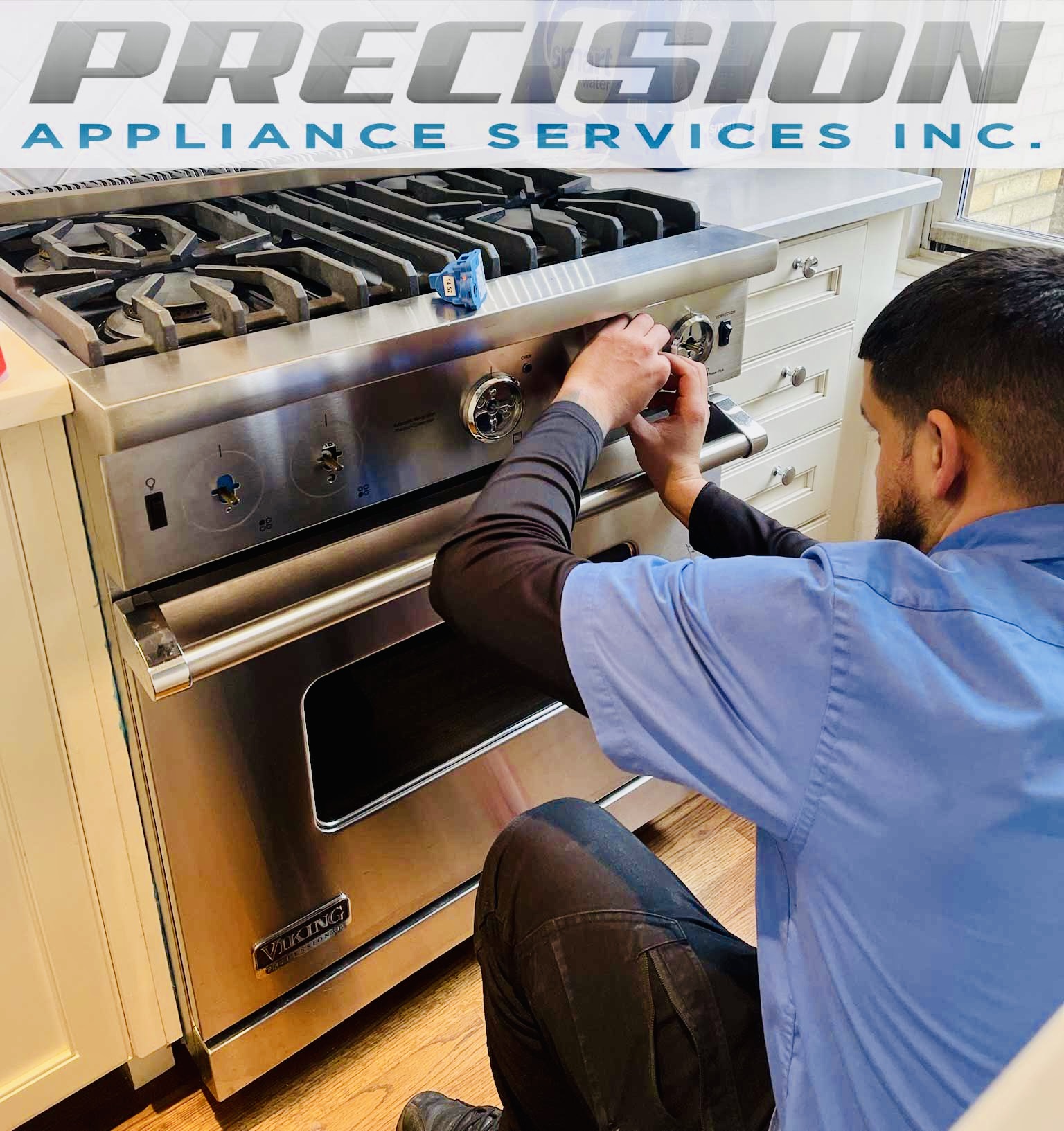The Ultimate Overview to Comprehending Home Appliance Fixing at Home
When your refrigerator quits cooling down or your stove rejects to warmth, it can feel overwhelming. Understanding home appliance repair at home can conserve you money and time. You'll learn to identify symptoms, utilize essential devices, and follow a methodical troubleshooting procedure. But prior to you begin, there are vital security precautions you need to think about. What are the most typical troubles, and how can you repair them? Allow's explore the essentials.
Typical Device Issues and Their Signs
When your devices begin breaking down, it's vital to acknowledge the indications early. Ignoring them can cause larger issues and costly repair work. If your fridge isn't cooling properly, you might see cozy places or condensation developing. This could indicate a falling short compressor or a blocked vent.Your dish washer might show problems via dirty recipes or unusual sounds throughout cycles. If you hear grinding or clanking, it's time to investigate.A washing machine that won't rotate or drain can leave you with soaked laundry, recommending a clogged up drain or a malfunctioning pump.Lastly, if your stove's temperature level appears off or it takes for life to preheat, you may be taking care of a faulty thermostat. By remaining sharp to these symptoms, you can deal with problems before they rise into major repairs.
Vital Tools for Device Repair Service
When you're taking on appliance repair work in the house, having the right devices is crucial. Basic hand devices like screwdrivers and pliers will assist you dismantle and deal with various home appliances, while electric screening tools assure you're working securely with wiring. Allow's go over what you require to begin on your repair service trip.
Fundamental Hand Devices
Having the right devices is crucial for efficient appliance repair service at home. Beginning with a reputable screwdriver collection, consisting of both flathead and Phillips types, as screws are usual in appliance setting up. Pliers are additionally vital; they aid with gripping, twisting, and cutting cords or tiny parts. A set of needle-nose pliers can reach difficult situations conveniently. You'll require a good adjustable wrench for tightening up or loosening up nuts and bolts. An energy blade comes in handy for cutting via packaging or insulation. Don't fail to remember a durable workbench or surface area to safely arrange your tools and components. With these fundamental hand devices, you'll be well-prepared to deal with most appliance repairs that come your means.
Electrical Testing Devices
Together with fundamental hand devices, electrical testing tools play a vital role in device repair work. These devices assist you detect electric concerns and warranty home appliances function safely. A multimeter is vital; it determines voltage, current, and resistance, enabling you to identify issues quickly. A non-contact voltage tester is an additional must-have, letting you spot live cables without making straight get in touch with, improving your safety. Clamp meters are terrific for gauging present circulation in cables without separating them, saving you time and initiative. In addition, circuit testers can swiftly inspect if electrical outlets are working appropriately. By making use of these tools, you'll improve your troubleshooting process and improve your fixing skills, making appliance maintenance a great deal easier.
Step-by-Step Overview to Diagnosing Device Issues
When your device acts up, it can be irritating, but diagnosing the concern doesn't need to be overwhelming. You'll discover to identify typical problems and apply efficient fixing methods. Let's go through the actions to obtain your appliance back in functioning order.
Usual Device Troubles

Troubleshooting Techniques Discussed

Repairing Major Kitchen Area Appliances: A Closer Look
Have you ever wondered just how to deal with common problems with your kitchen appliances? Fixing major cooking area home appliances like fridges, stoves, and dish washers can be less complicated than you believe. Beginning by determining the issue-- whether it's a fridge not cooling or a stove that will not heat up. Usually, a basic reset or checking the source of power can resolve the issue.For refrigerators, tidy the condenser coils and examine the door seals. If your oven's not heating, evaluate the home heating aspect and thermostat. Dish washers may simply require a tidy filter or a reset to get them back at work. Always disconnect the device prior to diving into repair services to guarantee your safety.Don' t forget to speak with the customer handbook for specific troubleshooting suggestions related to your model. With a little bit of persistence and the right tools, you can with confidence tackle home appliance repair work and conserve money while doing so!

Fixing Laundry Devices: Tips and Techniques
When your laundry devices begin acting up, it can really feel overwhelming, but fixing them doesn't need to be a hassle. Begin by checking the power supply. Confirm the appliance is connected in and the outlet is working. Next, inspect the door or lid button; a malfunctioning button can avoid the device from operating.For washers, if it's not rotating, examine for out of balance lots. Rearranging the clothes might solve the problem. If your clothes dryer isn't home heating, tidy the dust filter and check the vent for blockages.Listen for uncommon noises; they can show an issue. If your home appliance is leaking, inspect the hoses for fractures or loosened links. Document any kind of mistake codes presented on electronic screens, as they can lead you in recognizing the issue. Speak with the individual guidebook for specific troubleshooting suggestions related to your model.
Security Preventative Measures to Take Throughout Repairs
Before you begin any appliance repair services, it's necessary to prioritize safety and security to avoid accidents or injuries. Disconnect the home appliance or turn off the circuit breaker to assure no power reaches it while you function. Usage insulated tools to decrease the risk of electrical shock. Use safety and security goggles and handwear covers to safeguard on your own from sharp edges or debris (Kenmore here Dryer Repair Oro Valley Dependable Refrigeration & Appliance Repair Service).Make certain your work space is clean and well-lit, so you can see what you're doing. Maintain kids and family pets away from the location to stay clear of distractions and prospective hazards. If you're taking care of gas home appliances, be extra careful; look for leaks before proceeding.Take your time, and don't hurry with repairs. If you really feel unclear about any type of action, it's far better to pause and study than to guess. Complying with these preventative measures will assist create a safer setting for your DIY appliance repair service job
When to Call an Expert for Help
Exactly how do you recognize if it's time to employ a professional for device fixings? If you've tried basic troubleshooting without success, it's a clear sign. If your appliance still won't start or shows uncommon sounds after resetting it, don't be reluctant to look for professional help.When you observe leaks, smoke, or melting smells, focus on safety and call a professional immediately. These problems can lead to more substantial damages or present risks to your home.Also, if your appliance is under service warranty, getting in touch with a professional is typically the most effective course. They can assure that repairs will not void your guarantee, conserving you cash in the long run.Finally, if you're unsure or uneasy with intricate repair services, it's important to leave it to the experts. Bear in mind, dealing with difficult problems without the ideal proficiency can result in costly errors. Trust fund a professional when in doubt!
Often Asked Concerns
How Can I Protect Against Home Appliance Issues in the Future?
To protect against device troubles in the future, you must execute routine maintenance, look for deterioration, clean filters, and prevent overloading. Staying positive will help extend their life expectancy and keep them running efficiently.
What Are the A Lot Of Usual DIY Device Repair Mistakes?
You may ignore security precautions, skip troubleshooting steps, or use incorrect tools when trying DIY appliance repairs. Rushing the process or neglecting manufacturer guidelines can bring about more considerable concerns and expensive mistakes. Stay patient and informed!
Exactly how Do I Know if a Component Needs Substitute?
You can inform if a part needs replacement by looking for unusual sounds, leakages, or irregular efficiency. If the device has a hard time to operate correctly or shows noticeable damages, it's most likely time for a replacement.
Can I Utilize Generic Components for Home Appliance Fixes?
Yes, you can use common parts for device repairs, but ascertain they work - Washer dryer repair service Dependable Refrigeration. Generic components may save you cash, yet they can affect performance or longevity, so weigh your alternatives meticulously before choosing
What Warranties Cover Home Appliance Services?
A lot of home appliance guarantees cover repairs for manufacturing flaws, but they usually exclude damages from misuse. Examine your service warranty terms thoroughly, as some could call for using qualified professionals and initial components for coverage to stay legitimate.